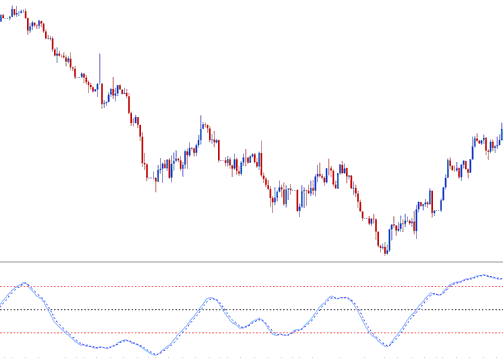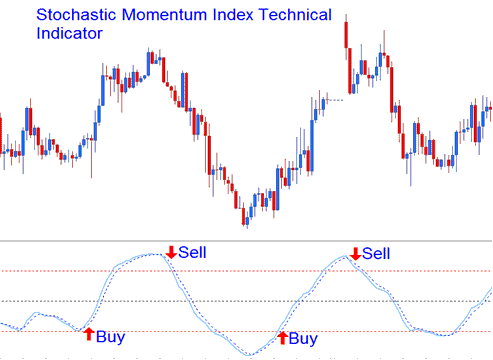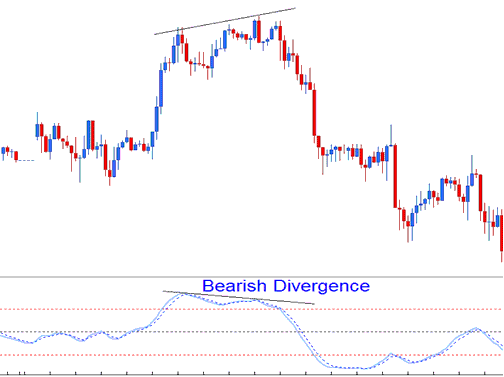SMI Technical Analysis & SMI Signals
Developed by William Blau.
SMI indicator is an adaptation of the classic Stochastic Oscillator indicator that smoothes out the stochastic trading indicator oscillations.

Construction of SMI
This indicator is calculated by comparing the price relative to the average of an n number of periods.
Then instead of plotting these values directly, smoothing using an Exponential Moving Average is applied and then the values drawn to form the SMI.
When the closing price is greater than the average of the range, the SMI will move up.
When the closing price is less than the average of the range, the SMI will move downwards.
This oscillator ranges between the values of +100 & -100, this indicator is also less prone to whipsaws compared to the stochastic oscillator.
CFDs Analysis & How to Generate Signals
Buy & Sell Signals/ Crossover Signals
The SMI can be used to generate buy & sell signals using the method shown below, Buy when the SMI is heading upwards and sell when its heading downwards.

Buy and Sell Signals/ Crossover Signals
Overbought/Oversold Level CFD Trading Crossovers
- Overbought levels above +40
- Oversold levels below -40
Buy trading signal is generated when this oscillator falls below oversold level & then rises above this level and starts to move upward.
Sell Signal is generated when this oscillator rises above overbought level and then falls below this level and starts to move downwards.
Divergence CFDs
The example shown below shows a bearish classic divergence between the price and the SMI. When the SMI showed this divergence the price cfd trend reversed and started to move in a downward direction.

Bearish CFDs Trading Divergence


